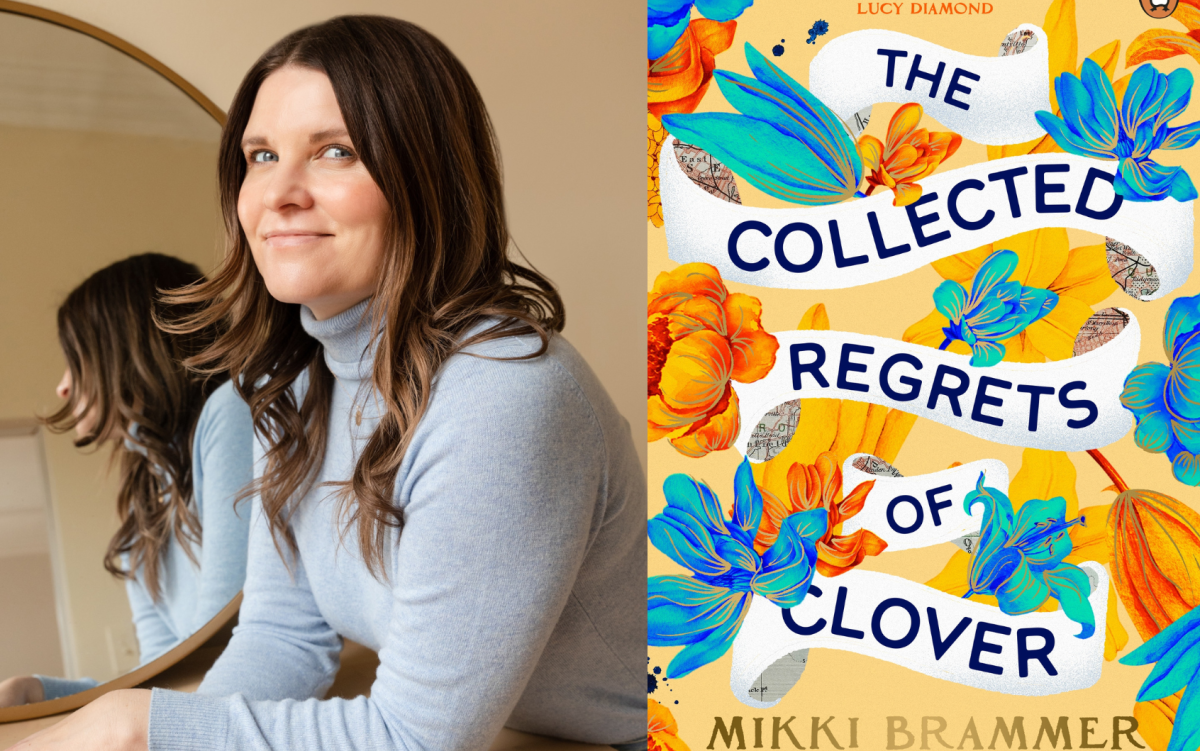‘The first time I watched someone die, I was five years old.’
Clover Brooks, The Collected Regrets of Clover by Mikki Brammer
In Mikki Brammer’s novel, The Collected Regrets of Clover, Clover Brooks works as a death doula, providing comfort and company to those at the end of their life. Through flashbacks, readers hear about the three experiences of death that informed her choice of career. First, her teacher Mr Hyland, then in first grade her parents – the distracted and disinterested caregivers, who were killed while on holiday in China – and finally the grandfather, who singlehandedly raised her and died while Clover was travelling around Asia. As a doula, Clover was able to be present for 97 people at their deaths in a way she was unable to for her own family.
She writes her clients’ final sentiments in one of her three notebooks, which are labelled “Advice”, “Regrets” and “Confessions”. Facing death is often the best lesson on living well, so it is counterintuitive that Clover is presented to the reader as someone who is content with being a literal spectator to others’ lives. Her grandfather, a biologist, had taught her to watch people, searching for patterns in human behaviour. He gifted her binoculars, which she now uses to spy on the neighbours across the road, living vicariously through their romance.
At the age of 36, Clover lives a life of solitude, her only friend being her 87-year-old neighbour Leo, whom she met through her grandfather and with whom she plays regular games of mahjong. She seems happy enough with this isolation, saying:
>‘When you grow up as an only child, you learn to inhabit your imagination almost as frequently as you do reality. No one can let you down – or leave you – when you’re in control of the story.’
Clover Brooks, The Collected Regrets of Clover by Mikki Brammer
But only to a point:
>‘At first it soothed, swaddling me from the chaos and expectations of being human. Then, in an instant, it shifted from rejuvenation to numbing isolation.’
Clover Brooks, The Collected Regrets of Clover by Mikki Brammer
To escape her solitude, Clover heads to Midtown New York to attend one of her only frequented social events – a death café, a place where conversations pondering the intricacies of death are normalised, over food and wine.
It is at one such event that Clover first meets Sebastian, a man her age whose awkwardness Clover reads as that of a potential con artist. He appears in her orbit several times and eventually asks her to visit his dying grandmother Claudia, and perform death doula duties under the guise of being an admiring photography student.
Around this time, a new neighbour Sylvie befriends Clover, almost against her will. Sylvie is an extroverted free spirit who represents a life lived without regret. Her persistence in inviting Clover for coffee indicates that it will no longer suffice to be a passive observer of life – Clover must participate.
Clover consults the “Regrets” notebook regularly, should there be a way she can honour her clients who have died. Sometimes that means dying her hair because a client always wanted to but never did. But when Claudia reveals that her one regret is an unfulfilled love story, Clover and Sebastian embark on a road trip to find her long lost love, Hugo. Whether they are successful in this mission is for the readers to find out.
As someone seriously considering studying grief counselling, this reviewer found this plot very appealing. Brammer was born and raised in Tasmania, and her novel has a distinctively modern feel. At times, her descriptions of places and people can make readers sit back in awe. The words are so evocative and Brammer skilfully and warmly paints the environment and characters with a rare tenderness, which makes the reader feel as if they are there in the room.
Clover’s romantic history (that is, non-existent), makes one ponder the possibility of an asexual protagonist. Indeed, at one point Sylvie explicitly asks, ‘So are you Ace?’ The curiosity surprises Clover, who has never thought about how to label herself. The nervous declaration that she is attracted to men is not disappointing in itself, but the romantic storylines that follow are. Brammer had the opportunity to tell a unique story; instead, the intriguing plot and diverse true-to-life characters for whom this reviewer felt immense affection and held such promise, are let down by an execution, which, while well-written, has hints of a Hallmark midday movie.
The novel sends the message to the reader about ‘living a life with fewer regrets’, and embracing the mystery and wonder of life, by being ‘cautiously reckless’. While some readers may find this moving and poignant, it feels too earnest here, a little forced and preachy.
Read: Book review: A Brief History of Thought – Unfinished, John Bryson
The Collected Regrets of Clover packs less of an emotional punch than intended. In part, this may be due to the pacing. Although it picks up speed toward the end, some parts drag, particularly around Clover’s ruminations on her past. After reading the first few chapters, this reviewer had expectations of a story that would leave a lasting imprint on her soul. Sadly, that imprint has already faded. Still it is definitely worth reading, if only for the characters, who have lingered on their own.
The Collected Regrets of Clover by Mikki Brammer
Publisher: Penguin, first published in Australia by Viking in 2023.
ISBN: 9780143779018
Format: Paperback
Pages: 320
Release Date: 30 April 2024
RRP: $22.99
This review is published under the Amplify Collective, an initiative supported by The Walkley Foundation and made possible through funding from the Meta Australian News Fund.





